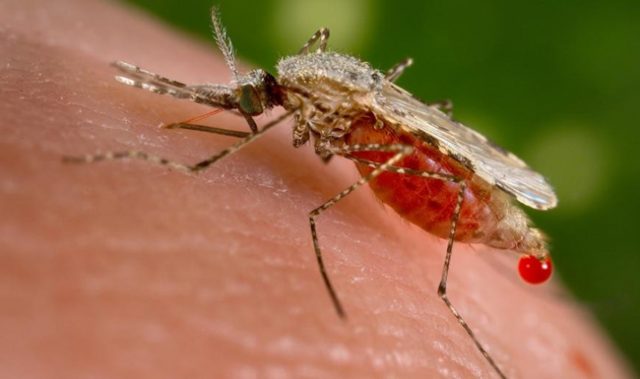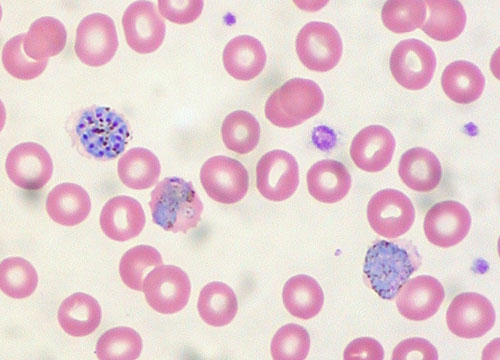
AsianScientist (Feb. 25, 2013) – Immature malaria parasites are more resistant to treatment with key antimalarial drugs than older parasites, says a new study.
University of Melbourne researchers have shown for the first time that malaria parasites (Plasmodium falciparum) in the early stages of development are more than 100 times less sensitive to artemisinin-based drugs, which currently represent a last line of defense against malaria.
The study, published recently in the journal PNAS, was conducted by a team led by Professor Leann Tilley and Dr Nectarios (Nick) Klonis from the Department of Biochemistry and Molecular Biology and the Bio21 Institute.
The drug artemisinin (ART) saves millions of lives each year but it is still not clear exactly how it works. Professor Tilley’s team developed a novel approach to examine how the parasite responds to drugs under the conditions it encounters in the body. This is important because the malaria parasite takes two days to reach maturity in each cycle but the drug only remains in the bloodstream for a few hours.
“We were surprised to find that juvenile parasites were up to 100 times less sensitive to the drug than mature parasites, and that in some strains the juvenile parasites showed a particularly high degree of resistance. This would result in a large number of juvenile parasites surviving against clinical treatment and helps explain how resistance to drugs develops,” Tilley said.
In order to survive in the human body, the parasite must inhabit red blood cells for part of its life cycle, to do this it first digests the cell contents including the hemoglobin protein which carries oxygen in blood.
“We found that the parasite is most susceptible to drug treatment when it is digesting hemoglobin, suggesting that a breakdown product, possibly the hemoglobin pigment, is activating ART to unleash its killing properties,” Klonis said.
The team first suspected the possibility of lower drug sensitivity of juvenile parasites when they studied the parasite’s digestive system using a 3D imaging technique called electron tomography.
“In juvenile stages the parasite’s digestive system is not yet active, which explains how this stage can avoid the effects of the drug,” Tilley said.
“We hope that our findings will provide a guide for changing the timing of the drug treatment regime and developing longer lasting drugs, thereby killing more of the parasites and reducing the development of drug resistance.”
The article can be found at: Klonis N et al. (2013) Altered temporal response of malaria parasites determines differential sensitivity to artemisinin.
——
Source: University of Melbourne.
Disclaimer: This article does not necessarily reflect the views of AsianScientist or its staff.












